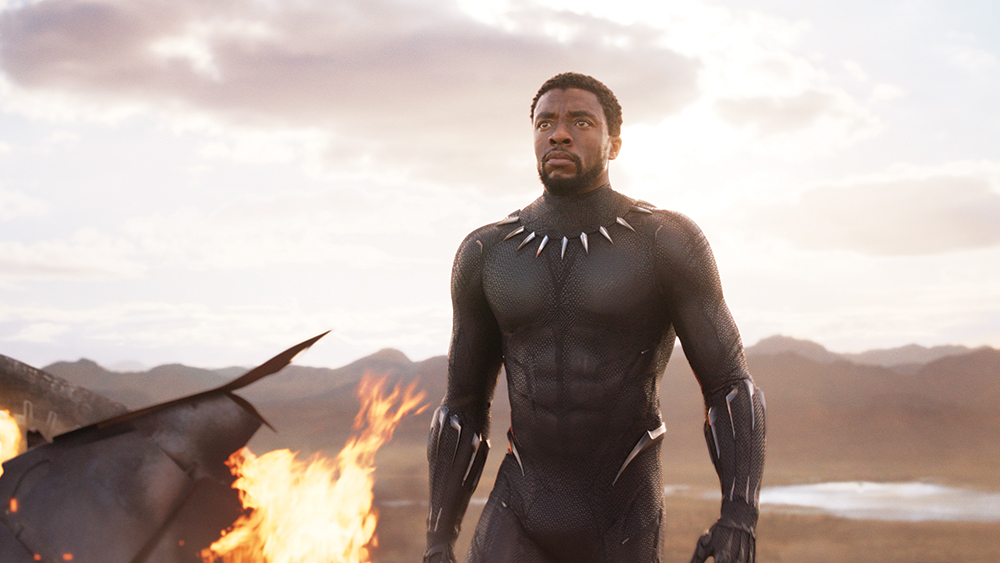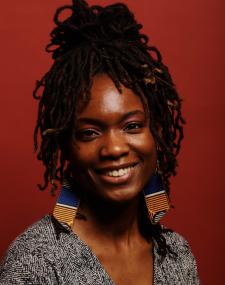Friday, Apr 16, 2021
Dr. Sheena Howard is the editor of ‘Why Wakanda Matters’
by Adam Grybowski
Last year, when the murders of George Floyd and other Black Americans were first beginning to roil the nation, Dr. Sheena Howard was putting the finishing touches on Why Wakanda Matters, her book about the seminal 2018 movie Black Panther. It collects a series of essays that examine what lies beneath the movie’s enormous cultural impact and financial success.
Serving as the book’s editor, Howard had already completed its introduction, but witnessing and feeling the pain and tumult of the moment, she knew she was going to have to re-write it in order to contextualize recent events.
Then, after she completed the new introduction, Chadwick Boseman, the star of Black Panther, died unexpectedly. Through his life and career, Boseman had become a symbol of Black excellence, and no role contributed more to that perception than his turn as T'Challa. In the movie and the comics that inspired it, T'Challa and his alter ego, Black Panther, rule over Wakanda, a fictionalized vision of an African nation untouched by systemic racism and oppression.
Howard was one of many who felt Boseman’s loss personally. She rewrote the introduction again.
As the process of writing the foreword suggests, Black Panther is intertwined with the psychological, cultural and social experiences of Black people. Through Why Wakanda Matters, which was published by SmartPop in February, Howard wanted to add depth to the conversation about the movie’s meaning and its success.
“I wanted to understand the psychology of the audience behind the craze of such a huge box office hit,” she says. “Why were people so emotionally charged by the movie?”
Why Wakanda Matters features a foreword by Phillip Boutte Jr., Black Panther's costume concept artist. In addition to serving as editor, Howard also contributed a chapter to the book, Cognitive Dissonance and T'Challa's Evolution.
She is uniquely suited to steward such a project. A professor of communication and a scholar of Black comics, she is the first Black woman to win an Eisner Award, which is considered the Oscars of comics, for her first book, Black Comics: Politics of Race and Representation (2013). Among her many other projects, which include directing a documentary film and writing fiction, Howard is also the author of 2017's Encyclopedia of Black Comics and the co-writer of Superb, one of the first comic books to ever feature a superhero with Down syndrome.
Boseman’s Black Panther is not the first Black superhero in Hollywood. Wesley Snipes in Blade or Will Smith in Hancock are two other somewhat recent examples. But Black Panther broke the mold for Black representation in the Marvel Cinematic Universe and well beyond.
“Black Panther was special,” says Howard. “It challenged some of the one-dimensional iconography of Black people and presented a vision of what an African nation could have been if it wasn’t touched by white supremacy and colonialism.”
Directed by Ryan Coogler, the movie was something new in another regard. It broke several box office records, eventually grossing more than $1.3 billion worldwide. No movie by a Black director has ever earned more money. “The movie shattered the myth that people don’t want to go to the theater and consume content starring Black people,” Howard says.
If that kind of success represented pent-up demand for stories featuring, and created by, a more diverse range of people and artists, Howard believes there are many more audiences to serve.
"Especially in comics, the industry views it as risky to do anything other than keep selling the same white superhero over and over again,” she says. “But there’s a real robust Black comics community that has bubbled up. When you look at other pockets of the comics industry, you see that there is demand for diverse content. The gatekeepers need to give it a chance."


